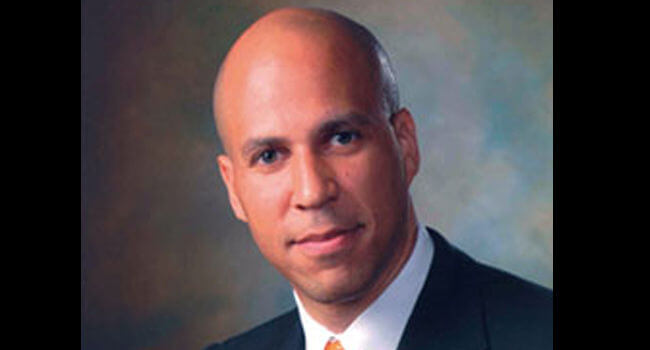WASHINGTON, DC – U.S. Senators Cory Booker (D-NJ) and Ron Johnson (R-WI) with U.S. Senators Tammy Baldwin (D-WI), Joni Ernst (R-IA), Sherrod Brown (R-OH), and Rob Portman (R-OH) introduced the Fair Chance Act, which would prohibit federal employers and contractors from asking a job applicant about his or her criminal history until the final stages of the interview process. The bipartisan bill is being introduced in the House of Representatives by Reps. Elijah Cummings (D-MD) and Darrell Issa (R-CA).
By “banning the box” in federal hiring and federal contractor hiring, the Fair Chance Act will help formerly incarcerated individuals re-integrate into society and gain meaningful employment, while still providing employers the opportunity to learn about criminal histories before hiring. The bill includes important common-sense exceptions for jobs related to law enforcement and national security, jobs dealing with classified information, and other jobs requiring criminal history information.
“The barriers faced by incarcerated people when they try to transition back into society are a big part of why our criminal justice system is so broken,” Senator Booker said. “Our bill helps to address this challenge by giving those who have paid their dues a second chance by putting jobs in the federal government or with a federal contractor within reach. At the same time, the bill also includes safeguards for employers. By improving employment prospects for returning citizens, we will not only better live up to our ideals, but will help reduce recidivism rates and make our communities safer.”
“If someone getting out of prison wants to work and be a productive member of society we should do everything possible to facilitate that. The dignity of work is one of the best ways we can keep people from turning back to a life of crime,” Senator Johnson said. “Between legislation like this bill and community workforce development initiatives like the Joseph Project, we can continue to help people get back to work and improve the safety of our communities, strengthen families, and reduce government dependence.”
“The Fair Chance Act represents second chances and opportunity,” Senator Ernst said. “This bipartisan legislation opens doors to those with a record who have served their time, and empowers them to pursue employment with the federal government or contractors based on their qualifications. Additionally, this legislation maintains safeguards for employers and proactively works to reduce recidivism and protect tax dollars. It’s my hope that the Senate will move on this important legislation as quickly as possible.”
“The Fair Chance Act will help formerly incarcerated individuals live out their God-given potential,” Senator Portman said. “This legislation will change lives in Ohio and across the country by ensuring the mistakes of our past don’t have to define the potential for our future. I hope that we all can join together on a bipartisan basis to support those who want a fair shot at living an honest and productive life.”
“If you’ve served your time, you shouldn’t continue to be punished for your past mistakes,” Senator Brown said. “We need to give folks who’ve paid their debt to society a fair shot to earn a living and contribute to society, rather than ending up back behind bars.”
“Those who have made mistakes and paid their debts to society deserve a chance to move forward and live a productive life,” Senator Baldwin said. “However today, more than 70 million Americans with criminal histories face unreasonable employment barriers that stand in the way of them successfully reentering society and contributing to our workforce. Our bipartisan effort will help ensure people have a fair chance to secure steady jobs, support their families and strengthen our communities.”
Specifically, the Fair Chance Act would:
1) Ban the federal government from requesting criminal history information from applicants until they reach the conditional offer stage.
2) Prohibit federal contractors from requesting criminal history information from candidates for positions within the scope of federal contracts until the conditional offer stage.
3) Include important exceptions for positions related to law enforcement and national security duties, positions requiring access to classified information, and positions for which access to criminal history information is required by law.
4) Require the Bureau of Justice Statistics, in coordination with the U.S. Census Bureau, to issue a report on the employment statistics of formerly incarcerated individuals.
Last Congress, Senators Booker, Johnson, Baldwin, Brown, and Ernst introduced the Fair Chance Act in September 2015. It passed unanimously out of the Homeland Security and Governmental Affairs Committee in October 2015. Co-sponsors
Wildwood Crest – Several of Donald Trump’s Cabinet picks have created quite a bit of controversy over the last few weeks. But surprisingly, his pick to become the next director of the FBI hasn’t experienced as much…








